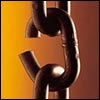"Join Lubavitch and see the world," the saying goes. I would like to thank my parents for joining Lubavitch; and, yes, I have gotten to see the world.
I write this article from Katmandu, Nepal, where I am spending my third consecutive Passover. I come on behalf of Chabad-Lubavitch to help organize and run the largest Seder in the world, with over 2000 participants, mostly Israeli backpackers on their post-military-service trek ("to see the world," too, I guess); it is truly an amazing experience.
On my journey here, I had an upsetting moment when reading the news. There were two featured headline photos on the front page of the Daily Telegraph.
The first featured a smiling Gerhard Schroeder; the German chancellor had his arm around a toothless 75-year-old Petro Mishtschuk, a Buchenwald camp survivor from the Ukraine. They were commemorating the 60th anniversary of the liberation of the camp that exterminated hundreds of thousands of our people.
Further down the page was a second photo, featuring an Israeli soldier arresting a demonstrator who was apparently involved in burning tires on the Jerusalem-Tel Aviv highway in protest of Ariel Sharon's "disengagement plan."
It struck me as the cruelest irony that the country that was built from the ashes of the concentration camps and the old Europe—what the Chancellor called "our deepest shame"--was itself going through some sort of war. But here it was a war of brothers. I was saddened by the thought that the very army that was built on the principle and vow that "No Jew in the world will remain unprotected again" was arresting brave settlers in their homeland. The extreme wild actions of some of these religious Jews frightened me, too.
"What does this mean?" I asked myself. Aside from the burning question of who is right and who is wrong in this debate (on which I certainly have my own strongly-held opinion), the animosity and lack of love that the two Jews in the picture displayed toward each other was dreadful to behold.
Thamel is a small district in Katmandu where tourists en-route to their different treks around the Annapurna and climbing the Everest gather for some civilization. The narrow streets clamor with rickshaws, taxis, and plenty of stores selling the local wares. I reckon there are more internet cafes and travel agents in this small neighborhood then in the whole of New York City.
In the center of all this hustle and bustle is a small building that houses the Beit Chabad ("Chabad House")--the one stop for all the Jewish travelers' needs. It is a home away from home for thousands of backpackers every year. With a kosher restaurant, library, medical clinic and synagogue, it serves as an embassy forJews of all nationalities.
As you can imagine, the preparations for the "largest Seder in the world" requires a lot of work and assistance. Many of the backpackers volunteer and come before Passover to help with the preparations. From the potato peelers and horseradish grinders to the security experts and first aid professionals, everyone is busy helping with their respective talents.

I sat down at one of the tables where they were slicing chatzilim--eggplant—an Israeli delicacy. Sitting at the table was Yoav who lives in Sa-Nur, a village in the Shomron slated to be evacuated this summer under the "disengagement plan." Next to him sat Erez from Tel Aviv. Together, they busied themselves with the chatzilim, smiles on their faces, singing an Israeli folk song and working systematically. The worries of home were obviously not troubling them right now as they sat in unity with one joint task in mind: preparing for Passover. I was amazed how such a diverse group was so close-knitted and fused in such a way. There was such unity that one rose above the differences, both political and religious.
The Chabad movement, since its launch in Russia more than two centuries ago, promoted the motto that all Jews are one, with one task in mind—making this world a dwelling place that G‑d would feel at home in. Today, it is possibly the largest Jewish international organization serving Jews from all walks of life in over fifty countries. Here in Katmandu it sets a great example: with all our diversities and divisions, we all share one Father in Heaven; we are one family and share one soul. There is a unity that transcends all disparity.
I sat quietly, listening in growing admiration to young people my own age who have been through situations I wouldn't wish on anyone. They have seen bloodshed and turmoil, yet they all seem happy and hopeful as they sit in unity preparing for the festival of liberation our people experienced over 3,000 years ago. I mutely hoped to myself that this harmony and unity will continue when they return to their homeland.
Unity is the foremost requirement to ensure our continuity. For there to be peace in the region, there must first be peace at home. We are most vulnerable when we are not unified; if we are to survive in today's hostile world, we must increase in goodness and kindness to one another.
That day in Katmandu gave me hope.






Join the Discussion